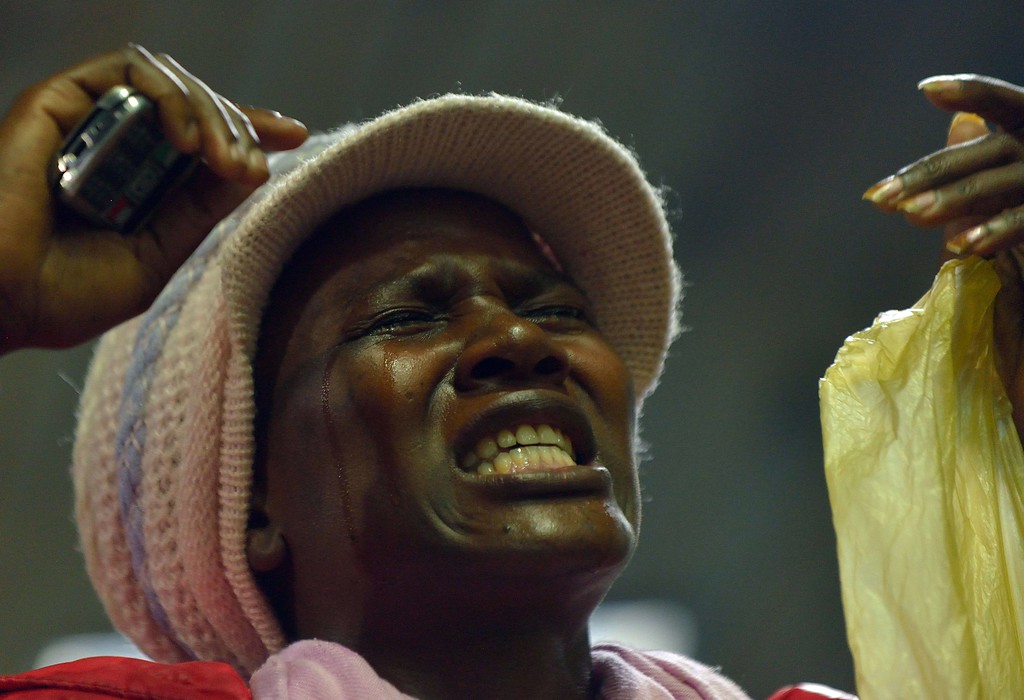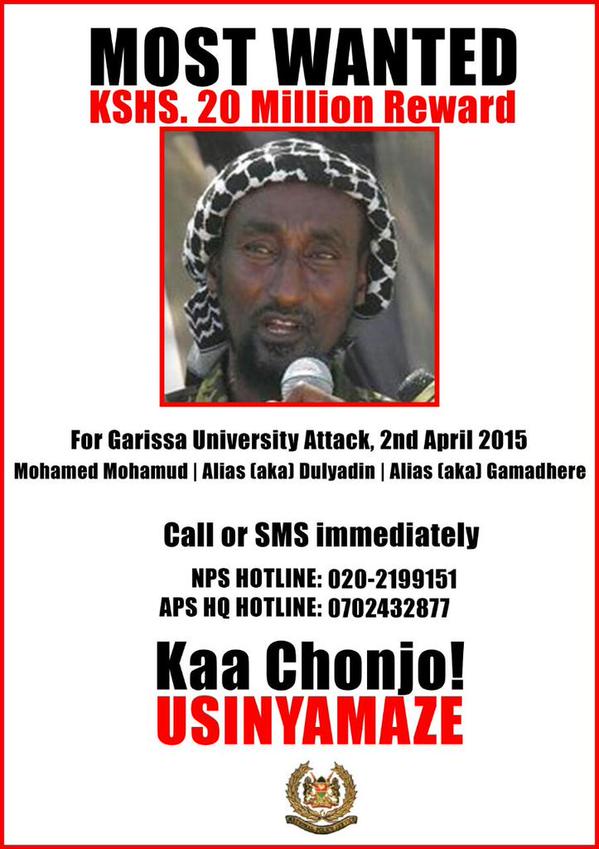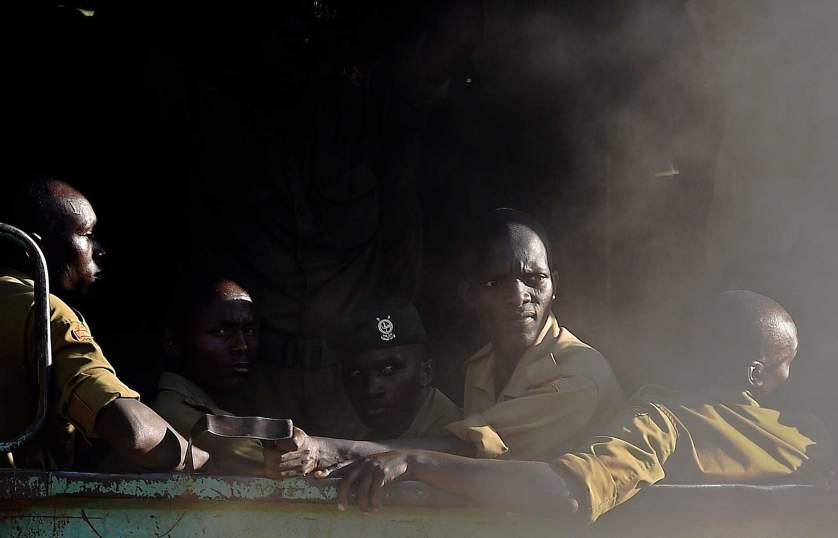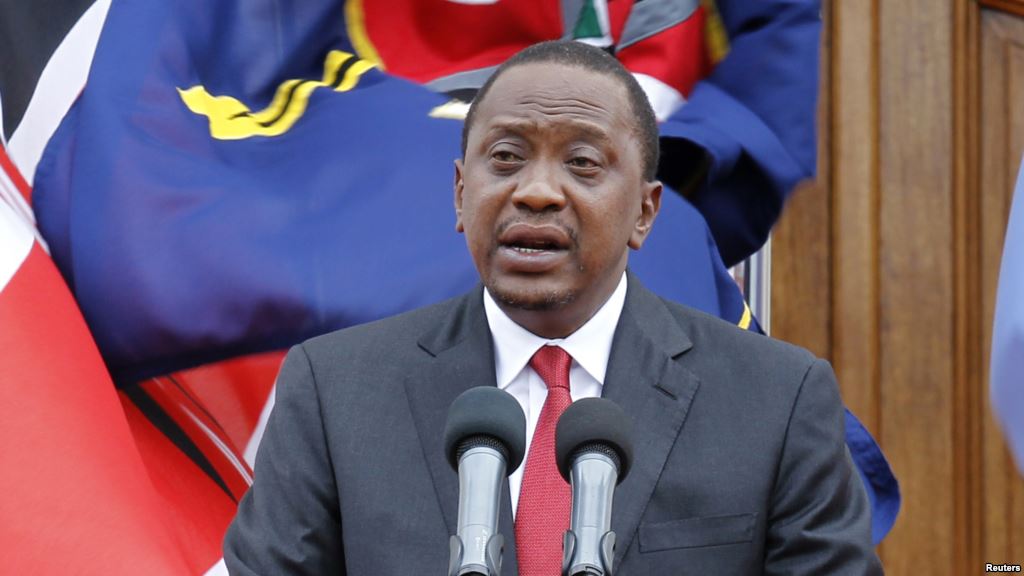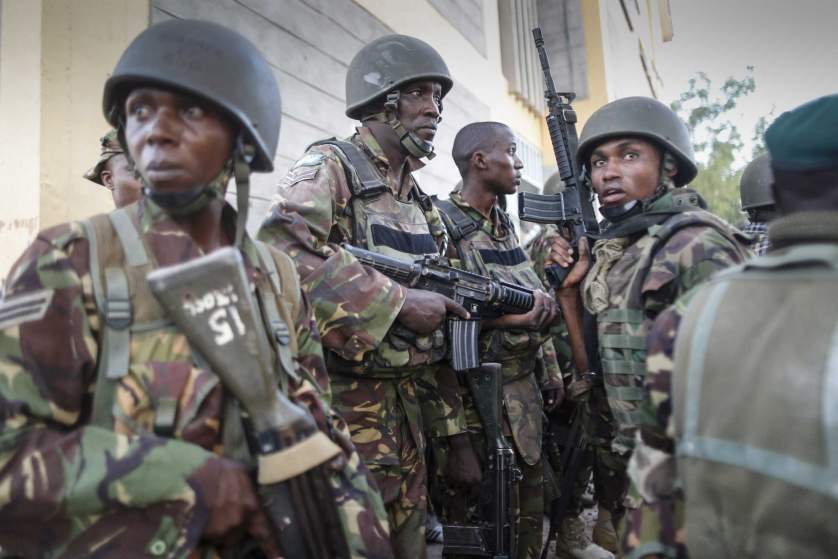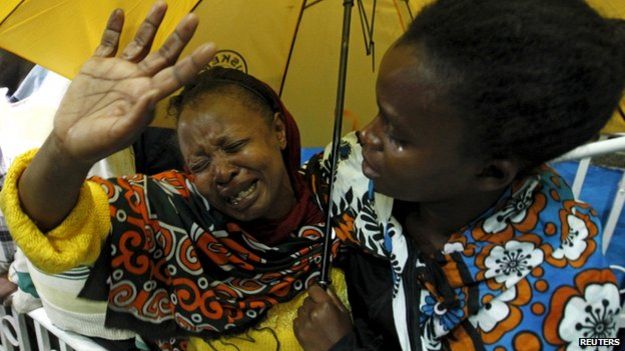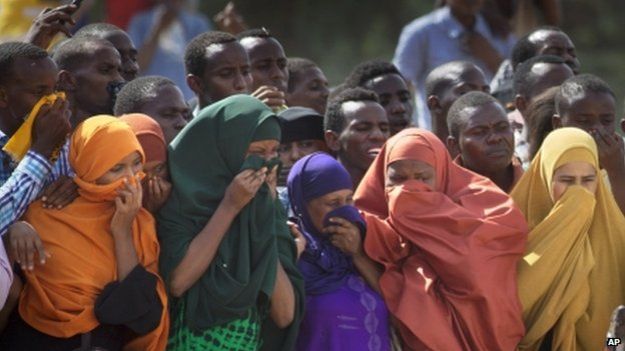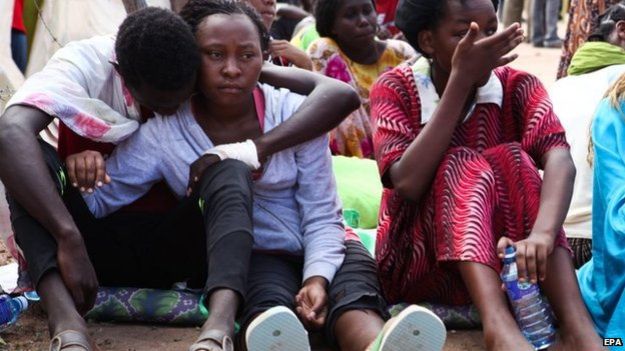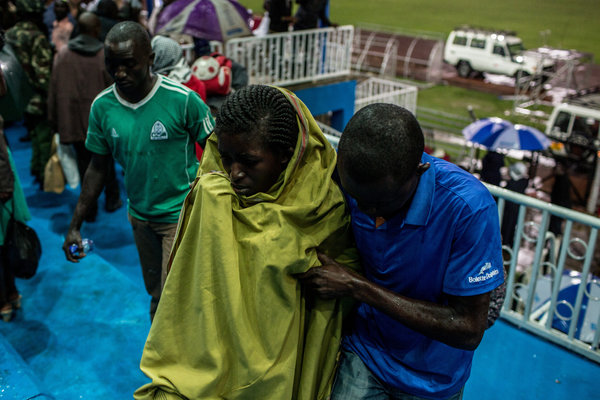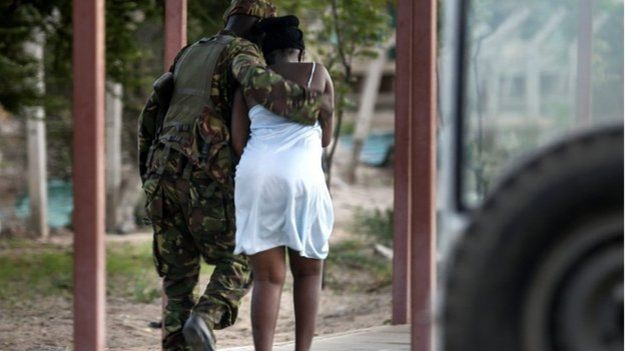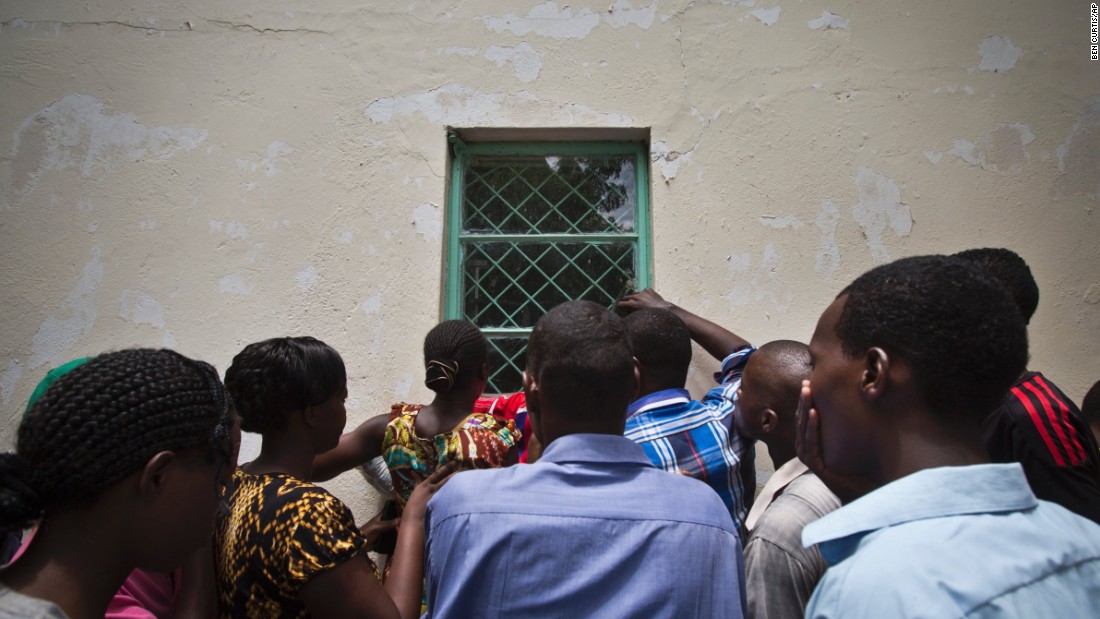After Killing 142 Students, Islamic Militant Group Threatens Another Bloodbath On Kenyans
Students at Kenya's Garissa university awoke on Thursday morning to the sound of gunmen prowling the campus, shooting at their classmates. Nearly 150 people were killed in what would become the deadliest attack yet by al-Shabab militants in Kenya.
The al-Shabab militants, who earlier this week stormed Garissa University College in the worst attack on Kenyan soil since the 1998 US embassy bombing by al-Qaeda, have issued a chilling threat that its terrorising of Kenya was far from over.
The Islamic extremists attacked Garissa University College in northeastern Kenya on 2 April, slaughtering 148 people, including 142 students, three security officers, and injuring at least 79 others.
A relative reacts after seeing her kin in Nairobi on 4 April 2015, among survivors of the attack by al-Shabab.
Image via smugmug.com"Kenyan cities will run red with blood," al-Shabab said, the Washington Post reported citing the SITE intelligence monitoring group. The militants warned of "another bloodbath" and a "long, gruesome war" unless Kenya withdrew its troops from Somalia.
al-Shabab militants warned that "no amount of precaution or safety measures will be able to guarantee" the safety of Kenyans, thwart another attack or "prevent another bloodbath."
Kenya's interior ministry has released this wanted poster of Garissa college attack suspect Mohammed Mohamud, also known as Dulyadin alias Gamadhere.
Image via BBCThe Kenyan government has named Mohamed Kuno as the mastermind behind the Garissa University College attack and has put a $215,000 reward for his capture. He has several aliases but is best known as Mohamed Dulyadin, which means ambidextrous in the Somali language. His exact age is not known.
Kuno is a Kenyan-Somali and was a headmaster at a madrassa, or Islamic school, in Garissa, Kenya until 2007. But then he crossed the border into Somalia to join the Union of Islamic Courts (UIC), which at one point controlled much of the country. He is alleged to have been behind several attacks on Kenyan soldiers who are fighting al-Shabab in Jubaland. He is also blamed for attacks on Kenyan civilians in Kenya itself.
Members of Kenya's police force look out from the back of a truck as it enters the Garissa university campus in the northeastern town
Kenya's President Uhuru Kenyatta was defiant when he addressed the nation in response to the attacks and al-Shabab's statement
“We will fight terrorism to the end,” he said. “I guarantee that my administration shall respond in the fiercest way possible.” He declared three days of national mourning for the victims of the attack. “We will bring all of them to justice,” Kenyatta said. “We are also in active pursuit of the mastermind and have placed a reward for his capture,” he said of the $220,000 being offered for information leading to Mohamud’s arrest.
washingtonpost.comAccording to a report by TIME, since 2011, it is estimated that more than 300 people have been killed by terrorist attacks in Kenya
“This is an issue of security and the government. It’s not an issue that is starting now—it’s been an issue that has been going on for a while. The security matter should be taken seriously and they’ve completely neglected the issue,” said Hussein Malaam, a student at University College of Garrisa who was awoken early on the morning of the attacks by a phone call from a friend warning him not to go to school. That was when Malaam started to hear gun shots coming from the nearby university.
“The people were trapped here for 13 hours—where was the government? They failed to protect their people,” said Farhiya Haji, a high school student from a nearby village who had walked two hours the day after the attack to see what was happening for herself at the gates of the university. “We don’t feel safe here and the government isn’t doing anything to protect us.”
Kenya's security situation has continued to deteriorate since the 2013 attack on Nairobi's Westgate Mall, where 67 people were killed. Late last year, al-Shabaab militants carried out two attacks in Mandera, also in Northern Kenya, according to the TIME report.
In the first attack 28 people were killed and in the second, 36. Both times gunmen identified Muslims and freed them while shooting or decapitating non-Muslims.
“Its not that al-Shabaab is so good at what they’re doing—the government just does such a terrible job that they make them look good. Al-Shabaab is probably at its weakest point since 2006,” said Abdullahi B. Halakhe, a Nairobi-based East Africa researcher with Amnesty International.
“Entrenched corruption in the security system allows al-Shabaab to move freely in and out of Kenya and carry out such attacks with ease,” said prominent Kenyan activist Boniface Mwangi in a statement online.
Kenyan soldiers prepare to sweep a building at Garissa University College after gunmen attacked the campus, in northeastern Kenya, on 2 April 2015
Image via TIMEThe Kenyan Red Cross says that so far 54 of the victims have been identified by relatives at a morgue in the capital, Nairobi. Meanwhile, buses are transporting more than 600 students and about 50 staff who survived the attacks to their hometowns.
Many survivors have been reunited with their families at Nairobi's Nyayo National Stadium which has been set up as a disaster centre.
Eighteen-year-old Lavenda Mutesi, who jumped out of her dorm room window to escape the attack, told AP: "As much as I'm grateful, I wish my friends were here, because I wish they could share this moment with me, with their parents... I lost a whole lot of friends."
Both Christians and Muslims have denounced the attack
On Sunday, Sunni Islam's most respected seat of learning, Cairo's al-Azhar University, said it condemned the "terrorist attack".
Pope Francis is expected to use his traditional Easter Sunday message to describe the students as contemporary Christian martyrs.
In Kenya, people took the streets to protest the killings and reject the idea that al-Shabab had succeeded in dividing the country, "What I can say is that here in Eastleigh [a Somali and Muslim Nairobi suburb] both Christians and Muslims are doing business together. There is harmony... There is no religion that says people should kill one another," one man told the BBC.
Most of those who died in the attack were studying at the college which opened in 2013 - it is part of Moi University, which is based in the Rift Valley town of Eldoret, the BBC reported
A student who left Garissa before the attack for the Easter break told the BBC that many of those at the college were from western Kenya - and many of them were Christians. This is because Kenya operates a swap scheme for tertiary level education.
Those applying to the government's Higher Education Loans Board are part of this scheme which means they must study in a different region from where they went to senior school.
Eunice Oganogo, 19, a freshman at the college, was comforted by relatives at the Nyayo National Stadium.
Image via NYTMany Garissa residents channeled their emotions by turning out in the traffic-clogged streets Saturday to view the bodies of four men alleged to have taken part in the massacre, even as Somali militants issued a statement threatening Kenya with more attacks
Some wanted desperately to verify that the attackers weren’t their countrymen, others wanted to see if they recognized a face, and still others wanted to see that those capable of such brutal acts had experienced some vague form of justice.
“I want to see them,” Muna Haji said. “I want to know that these people are dead. They have killed innocent people.”
The four naked bodies were loaded haphazardly into the back of a pickup truck at the morgue where they had been held since morning. Local and international forensics teams had taken their clothes as evidence.
The truck paraded the bodies through town as residents ran alongside, clamoring for a glimpse, until it arrived at Garissa Primary School, where about 2,000 people had gathered. There, it parked, and the bodies sat. Flies gathered on the bloated limbs hanging from the truck bed as the crowd swelled.
People crowd around a mortuary window on Saturday April 4, to view the bodies of gunmen killed.
Image via CNN